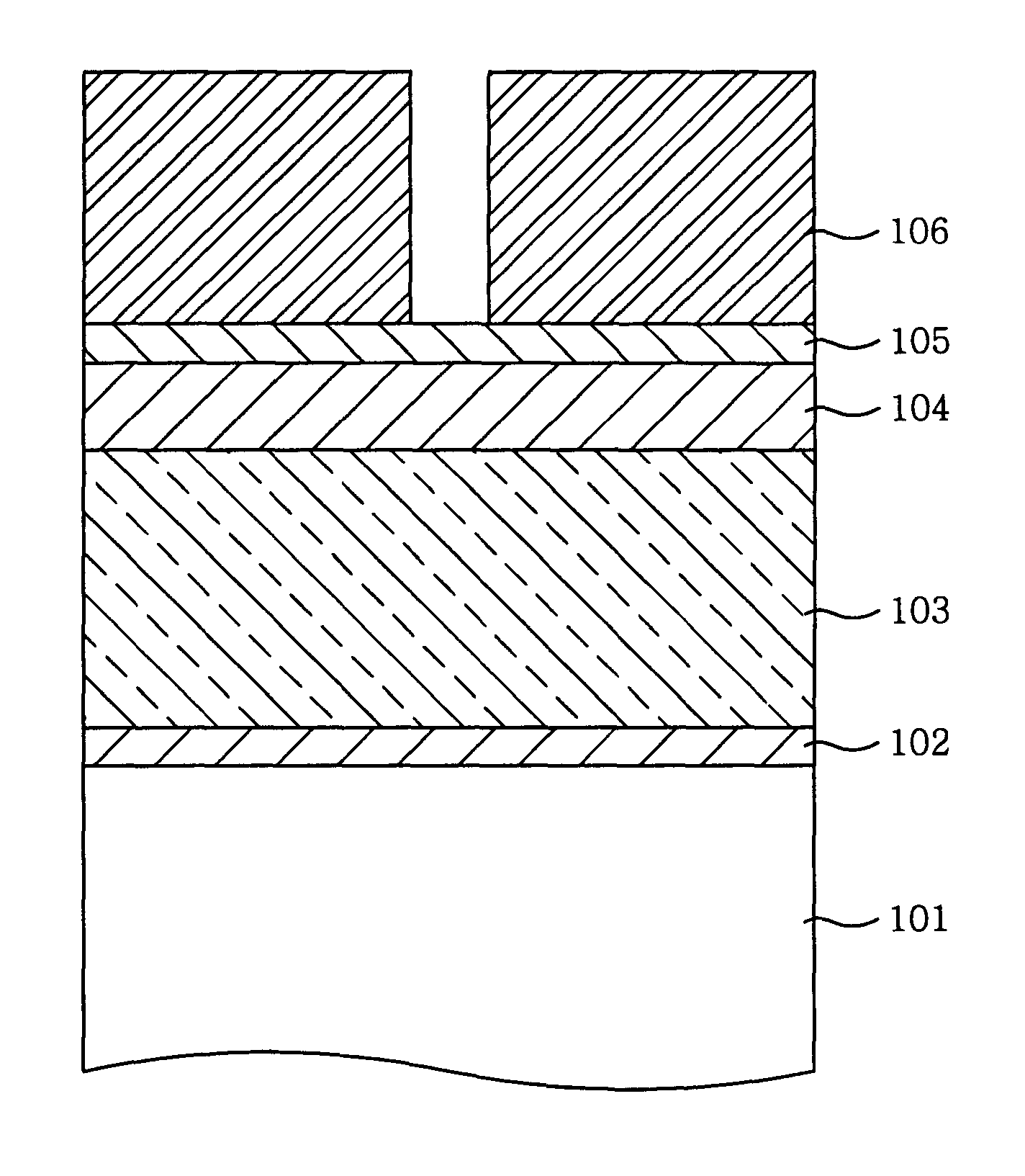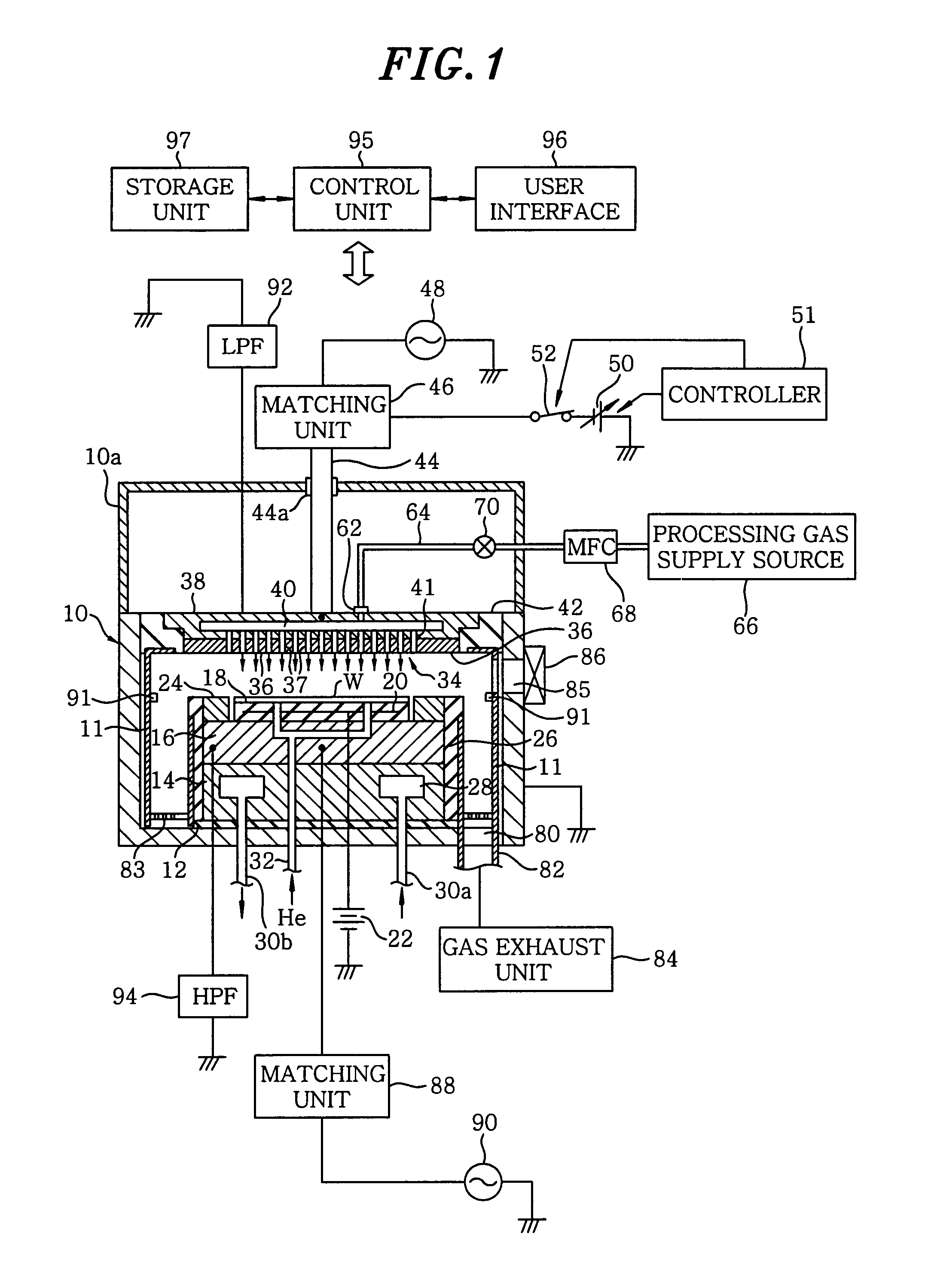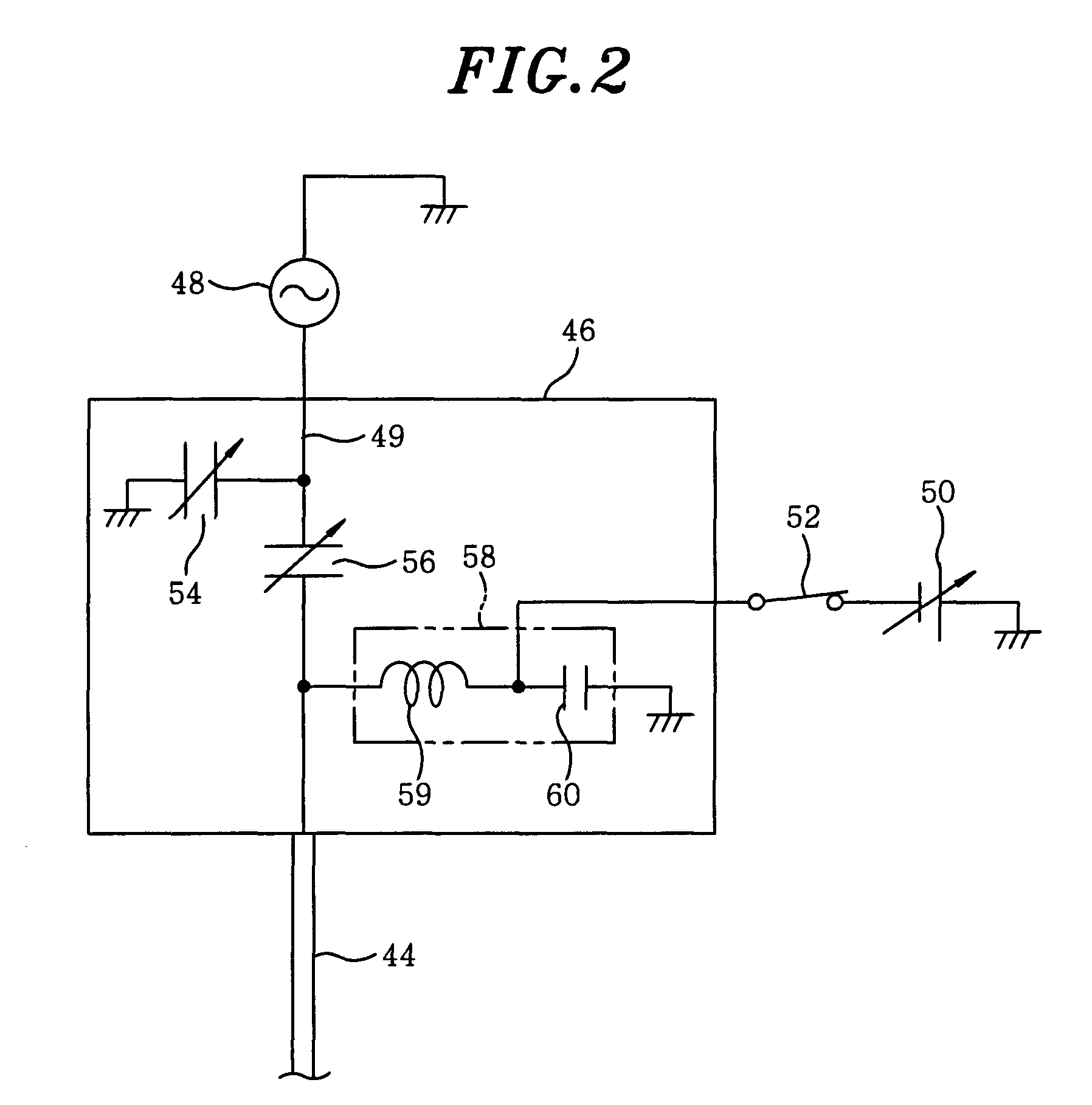Plasma etching method and computer-readable storage medium
a technology of etching method and etching method, which is applied in the field of plasma etc., can solve the problems of enlargement of openings, low plasma resistance of photoresist, and surface roughening, and achieve the effect of increasing the plasma resistance of the hard mask layer, sufficient etching selectivity, and improving etching selectivity
- Summary
- Abstract
- Description
- Claims
- Application Information
AI Technical Summary
Benefits of technology
Problems solved by technology
Method used
Image
Examples
experiment 1
[0077]A sample used in this experiment was fabricated to have a structure shown in FIG. 3, by sequentially forming, on a Si substrate, a SiN film having a thickness of 50 nm as an etching stop film 102, a two-layered film formed of a BPSG film (lower layer) and a TEOS film (upper layer) having a thickness 1500 nm as a target oxide film 103 to be etched, an amorphous carbon film having a thickness of 500 nm as a hard mask layer 104, a SiON film having a thickness of 60 nm as a bottom anti-reflection coating (BARC) film 105, and an ArF resist having a thickness of 200 nm as a photoresist film 106. After etching the hard mask layer 104 by using the apparatus shown in FIG. 1, the oxide film 103 was etched under various conditions by using residues of the photoresist film 106 and the hard mask layer 104 as an etching mask. Here, etching of circular holes each having a diameter of 90 nm was performed.
[0078]For the etching of the oxide film, processing conditions were as follows: an intern...
experiment 2
[0094]Here, a sample having the same structure as that of the Experiment 1 was fabricated, and after etching a hard mask layer 104 by using the apparatus shown in FIG. 1, an oxide film 103 was etched by using residues of a photoresist film 106 and the hard mask layer 104 as a mask. In this experiment, a processing pressure, an upper electrode temperature and a lower electrode temperature were maintained at 2.7 Pa, 95° C. and 10° C., respectively.
[0095]Further, in condition I, a high frequency power to the upper electrode and a high frequency power to the lower electrode were set to be 1200 W and 3800 W, respectively; a DC voltage was set to be −1000 V; and flow rates of C4F8, C3F8, Ar and O2 were set to be 40 mL / min (sccm), 25 mL / min (sccm), 900 mL / min (sccm) and 30 mL / min (sccm), respectively.
[0096]In condition J, the high frequency power to the upper electrode and the high frequency power to the lower electrode were set to be 1200 W and 3800 W, respectively; the DC voltage was set...
experiment 3
[0099]Here, a sample was fabricated to have the structure shown in FIG. 3, by sequentially forming, on a Si substrate 101, a SiN film having a thickness of 40 nm as an etching stop film 102, a PSG film having a thickness of 2.0 μm as a target oxide film 103 to be etched, an amorphous carbon film having a thickness of 400 nm as a hard mask layer 104, a SiON film having a thickness of 60 nm as a BARC film 105 and an ArF resist having a thickness of 200 nm as a photoresist film 106. After etching the hard mask layer 104 by using the apparatus shown in FIG. 1, the oxide film 103 was etched under various conditions by using residues of the photoresist film 106 and the hard mask layer 104 as an etching mask.
[0100]Here, etching of elliptical holes each having a longer diameter of 160 nm and a shorter diameter of 80 nm was performed with an aspect ratio of about 25. For the etching of the oxide film, processing conditions were as follows: an internal chamber pressure was 3.3 Pa, a high freq...
PUM
| Property | Measurement | Unit |
|---|---|---|
| DC voltage | aaaaa | aaaaa |
| width | aaaaa | aaaaa |
| depth | aaaaa | aaaaa |
Abstract
Description
Claims
Application Information
 Login to View More
Login to View More - R&D
- Intellectual Property
- Life Sciences
- Materials
- Tech Scout
- Unparalleled Data Quality
- Higher Quality Content
- 60% Fewer Hallucinations
Browse by: Latest US Patents, China's latest patents, Technical Efficacy Thesaurus, Application Domain, Technology Topic, Popular Technical Reports.
© 2025 PatSnap. All rights reserved.Legal|Privacy policy|Modern Slavery Act Transparency Statement|Sitemap|About US| Contact US: help@patsnap.com



